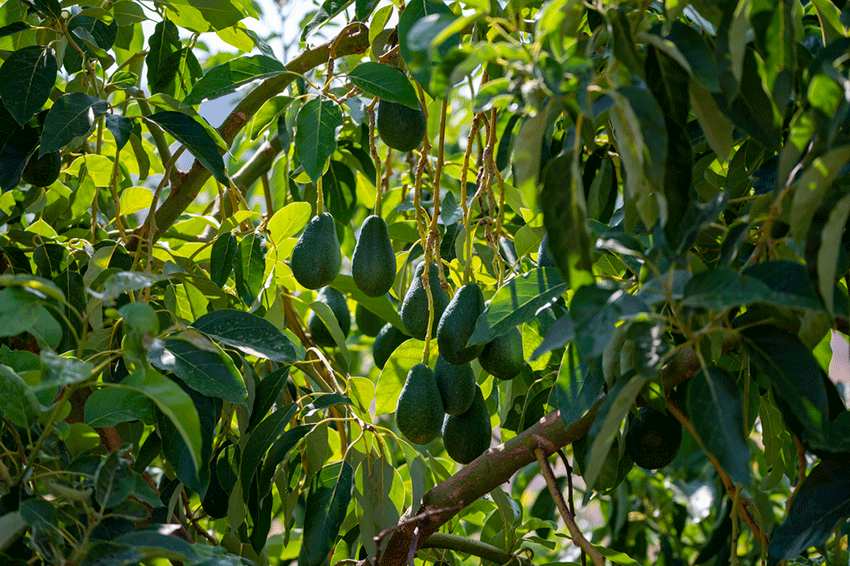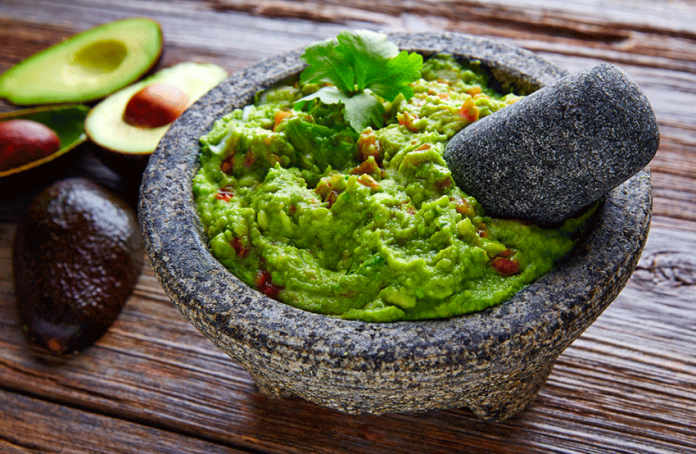The United States’ suspension of Mexican avocado imports will hurt an export industry worth over US $3.4 billion last year and threaten supply of the popular fruit in the U.S. market.
The Ministry of Agriculture announced Saturday that the United States had advised that it was temporarily suspending avocado shipments because a Michoacán-based U.S. inspector with the the Animal and Plant Health Inspection Service had received a threatening phone call. The embargo took effect last Friday.
It is unclear how long the suspension will last, although Mexican authorities have expressed optimism that it will be lifted promptly.
Avocado exports to the United States from Michoacán – the only state with authorization to ship the fruit across the northern border – were worth over $2.8 billion last year and the avocado industry in that state employs some 300,000 people directly and indirectly, according to the agricultural consultancy GMCA.
Total exports – Mexico also ships avocados to countries such as China, Japan and France – were worth $3.43 billion in 2021, with just over half of total production shipped abroad.
About 80% of Mexican exports go to the United States, and avocados grown in Michoacán account for the same percentage of the U.S. market.
Noting that avocados are a perishable product, GCMA director Juan Anaya said the U.S. ban on imports is “a serious problem.”
Finding alternative export markets while the suspension remains in place won’t be easy, he told the newspaper El País.
“… The Mexican government has to come to an agreement with the … [U.S.] Department of Agriculture and the Embassy so that … avocado exports can resume shortly,” Anaya said.
“The value of exports is amazing, it’s our third [biggest export] product after beer and tequila,” he said.
Little is known about the threat received by the U.S. inspector, but it is presumed it was made by a member of a criminal organization involved in the extortion of avocado producers in Michoacán, one of Mexico’s most violent states.

President López Obrador claimed Monday that economic and political interests were also a factor in the United States’ decision to suspend imports.
“We have to review what it’s about,” he told reporters at his regular news conference.
“There are a lot of economic and political interests in all this; there is competition – they don’t want the Mexican avocado to enter the United States or to dominate due to its quality,” López Obrador said.
Anaya noted there is speculation that the suspension is related to the United States’ opposition to Mexico’s proposed electricity reform, which would limit private and foreign companies’ participation in the Mexican energy market.
“Some people, like the president, speculate that it’s a non-tariff barrier to exert pressure [on Mexico],” he said.
The GCMA chief noted that Mexico is vulnerable to United States trade barriers given that its northern neighbor is the primary market for numerous agricultural export products, among which are beef, blueberries, tomatoes and sugar.
In an interview with Bloomberg News, López Obrador’s spokesman and communications director said the government is cooperating with its U.S. counterpart and that the suspension could be lifted in a matter of days.
Jesús Ramírez said the government has established the identity of the person who threatened the U.S. inspector, although he asserted he didn’t personally know who it was.
The threat made was not concerning, he told the news agency Tuesday, saying “it has no importance” and his understanding was that it was not a “direct threat.”
“There’s no problem so we’re going to see what more is required” in order for the suspension to be lifted, Ramírez said.
The longer it remains in place, the greater the impact on the U.S. market will be. The import ban is expected to affect supplies in the United States, where avocados are a virtual staple in many households, and increase prices for the so-called alligator pear at a time when its cost is at a two-decade high for this time of the year.
“We could see a significant reduction in availability,” said David Magana, senior analyst for financial services company Rabobank International in Fresno, California.
Despite that likelihood, the managing member and co-founder of California-based importer and vendor Freska Produce International said the decision to suspend Mexican avocado imports is “the right one.”
“We need to guarantee the safety of all who work in the avocado industry,” Gary Clevenger said.
“Not sure how long this will last but it’s going to put a bump in the supply side for a while. This could have longer-term effects if people decide not to buy Mexican avocados at both a retail buyer or consumer level, so it will be good for other importing countries coming to the U.S.,” he said.
“Hopefully everybody gets their act back together and Mexico allows for the flow of avocados again. We’ll have to see how this plays out.”
With reports from El País, Bloomberg and Horti Daily
